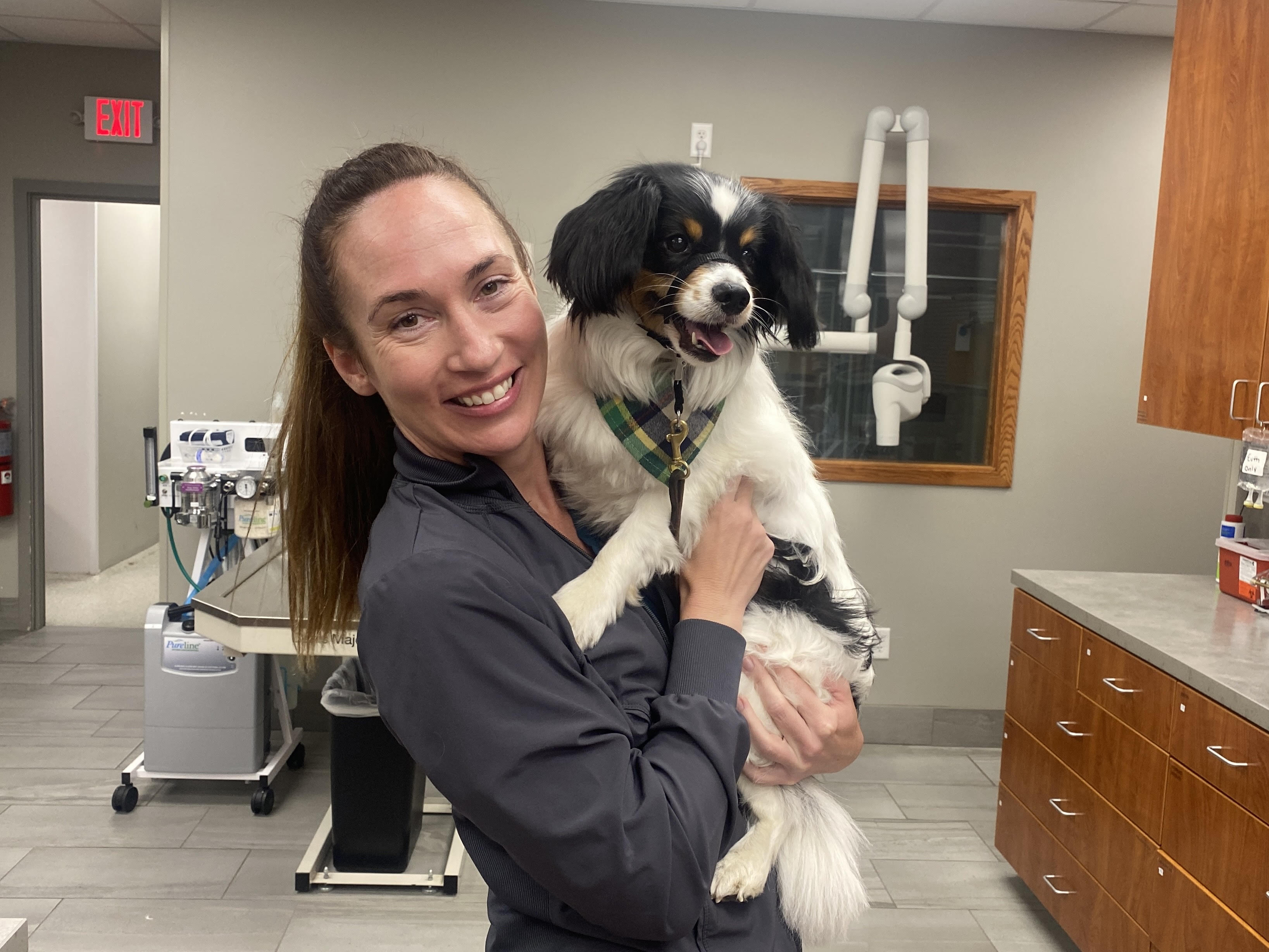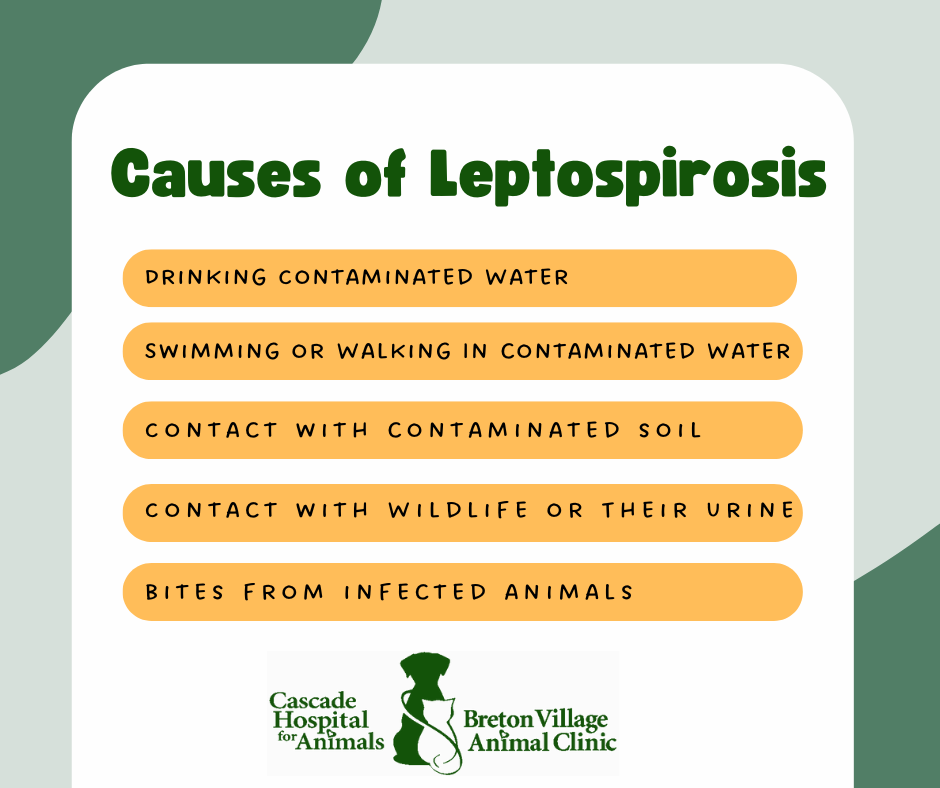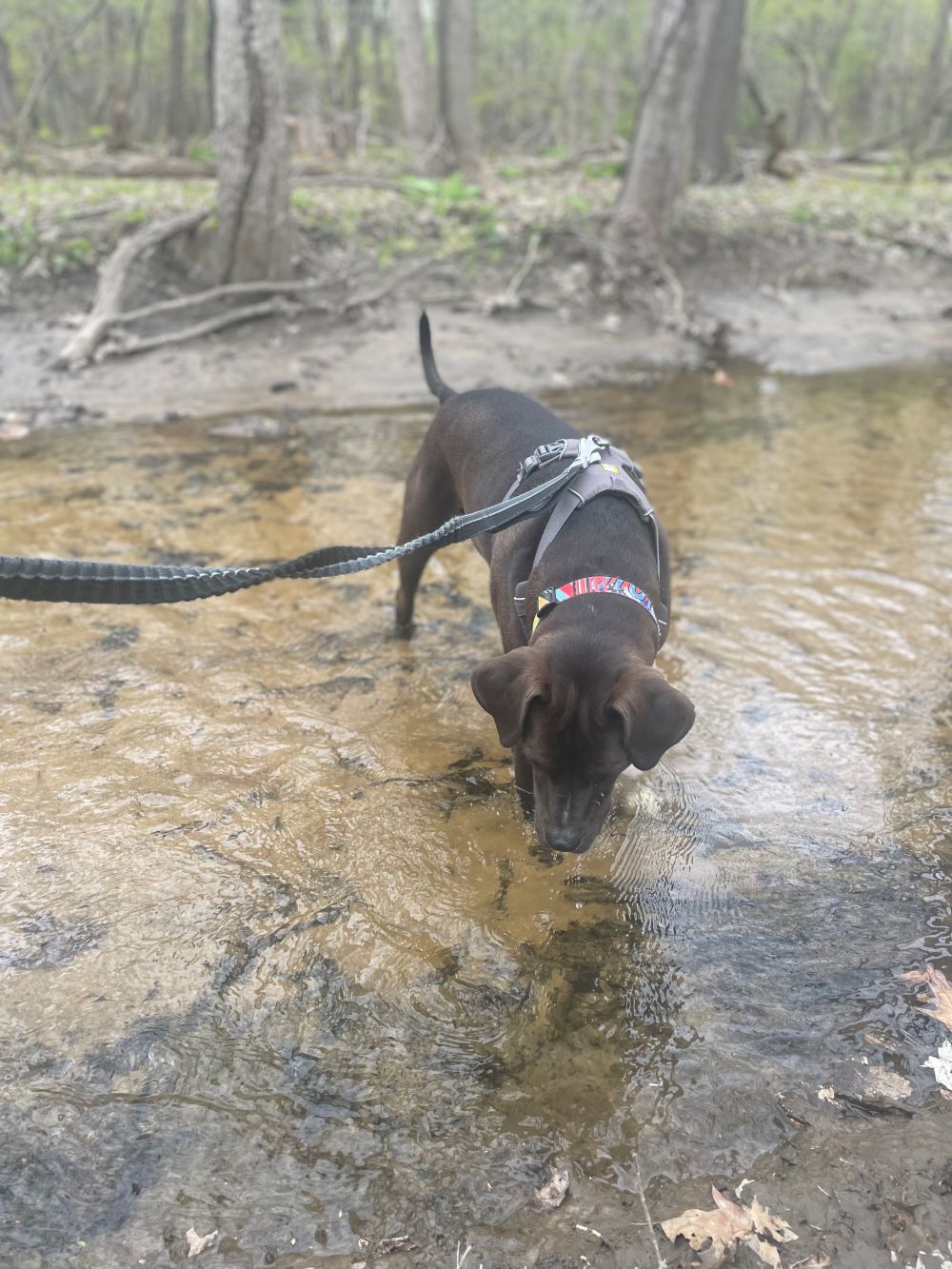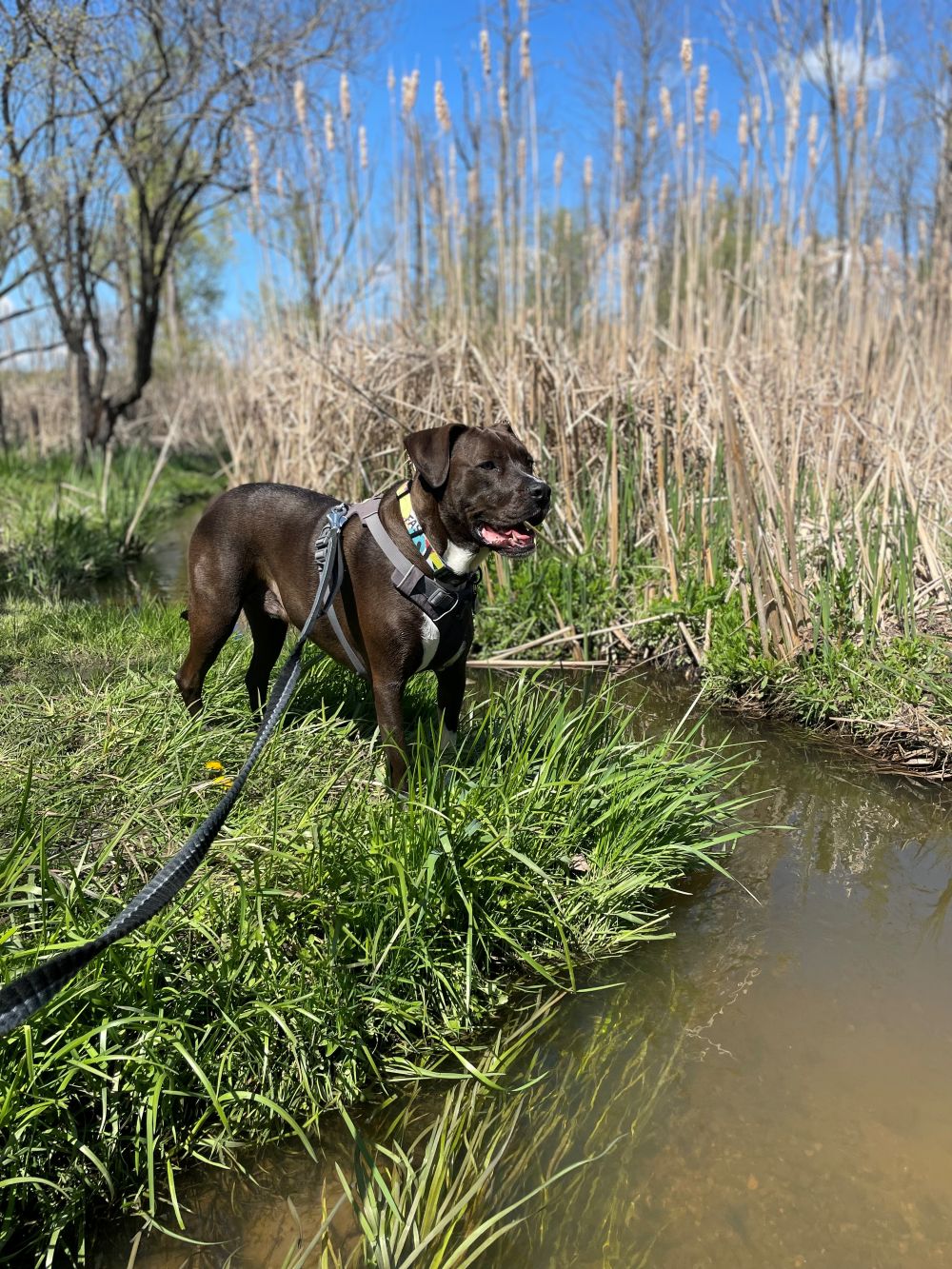
What You Need to Know About Leptospirosis
Here at Cascade Hospital for Animals, we're dedicated to keeping your beloved companions happy and healthy. That's why we want to talk about a serious, yet preventable, bacterial infection called Leptospirosis.
Think of leptospirosis as a "waterborne" bacterial infection, as Dr. Dana Isard, one of our skilled veterinarians, explains. "The bacteria like to hang out in water, especially stagnant or slow-moving water, and in the soil that's been contaminated by infected animal urine." When a dog encounters these bacteria, they can enter the bloodstream and wreak havoc on vital organs like the kidneys and liver, leading to life-threatening symptoms.
How Do Dogs Get Leptospirosis?

Dogs typically contract leptospirosis through contact with contaminated water, soil, or the urine of infected wild animals (think rodents, raccoons, opossums, and deer). Even other infected dogs can spread it.
- Drinking Contaminated Water: "This is a big one!" emphasizes Dr. Isard. Puddles, ponds, slow-moving streams, ditches, or even standing water in your backyard that has been contaminated are prime sources.
- Swimming or Walking in Contaminated Water: Even if they don't drink it, the bacteria can enter through cuts, scrapes, or mucous membranes (like the eyes, nose, or mouth) while swimming or wading.
- Contact with Contaminated Soil: Wet soil contaminated with infected urine can also harbor the bacteria. Dogs digging, sniffing, or eating contaminated dirt are at risk.
- Contact with Wildlife or Their Urine: If your dog sniffs the urine of an infected wild animal, they could pick up the bacteria. This is why dogs who spend a lot of time outdoors or in rural areas are at higher risk.
- Bites from Infected Animals: While less common, a bite from an infected animal could also transmit the bacteria.
"Think of it this way: If there's standing water or moist soil where wildlife might have urinated, there's a potential risk for leptospirosis," Dr. Isard advises. "This is why it's often seen more in certain geographic areas or during times of heavy rainfall or flooding."

What Are the Early Signs?
Spotting leptospirosis early can be challenging because the signs are often general. "It can be tough to spot leptospirosis early because the signs are pretty general, like your dog just feeling 'under the weather,'" says Dr. Isard. However, if you suspect your dog has been exposed (e.g., drinking from puddles), be extra vigilant.
"You might notice them drinking a lot more water than usual and needing to go outside to pee more often," Dr. Isard explains. "Sometimes, it can be the opposite, and they might not pee much at all. Any increasing drinking and urinary changes should be evaluated by your vet, especially if your dog isn’t vaccinated and has been exposed."
How is Leptospirosis Diagnosed?
Diagnosing leptospirosis is like solving a puzzle, according to Dr. Isard, as early signs can mimic other illnesses.
- Your Story is Key: "The first and most important step is talking to you!" Dr. Isard states. We'll ask about symptoms, how long your dog has been sick, and especially recent exposures.
- Basic Blood and Urine Tests: These initial tests can indicate kidney or liver issues or infection.
- Specific Lepto Tests (Confirmatory): If leptospirosis is suspected, special lab tests are sent:
- PCR Test: "Think of this like a 'DNA detective,'" Dr. Isard explains. This test looks for the bacteria's genetic material in blood or urine, indicating an active infection.
- Antibody Test (MAT or ELISA): This test checks for antibodies your dog's immune system produces to fight the bacteria. "The tricky part is that it takes a little while for these antibodies to show up in a sick dog's blood, so sometimes the first test might be negative even if your dog has lepto," Dr. Isard notes. Often, a second test a few weeks later (paired samples) is needed to confirm a rising antibody level.
 Treatment and Outlook
Treatment and Outlook
"Treatment for leptospirosis often involves a combination of antibiotics and intensive supportive care," Dr. Isard explains. Because the disease can severely impact organs like the kidneys and liver, many of these patients require hospitalization to receive the critical care they need. "I’ve seen cases that required dialysis," Dr. Isard notes, highlighting the potential severity and advanced medical interventions that can be necessary. The ultimate outlook for dogs with leptospirosis largely depends on how severe their symptoms are at the time of diagnosis and how quickly treatment is initiated. Early detection and aggressive care can significantly improve the chances of recovery, but it's important to remember that "Leptospirosis is a very serious disease that is preventable," Dr. Isard stresses, underscoring the vital importance of vaccination as the best defense.
The Power of Prevention: Vaccination
The leptospirosis vaccine is a crucial tool in protecting dogs. "It's very effective at preventing severe illness," Dr. Isard emphasizes. While no vaccine is 100% perfect, it significantly reduces the risk of severe organ damage, even death.
- Protection Against Common Types: Current vaccines protect against the four most common types of Leptospira bacteria.Lessen the Blow: Even if a vaccinated dog is exposed, they are far less likely to become very ill, experiencing milder or no symptoms.
- Stops the Spread: Vaccinated dogs are much less likely to shed the bacteria in their urine, protecting other animals and even people.
- Annual Boosters: "To keep your dog protected, the leptospirosis vaccine needs to be given every year," Dr. Isard advises.
"Think of it like getting a flu shot for yourself," Dr. Isard offers. "You might still get the flu, but it's usually a much milder case, and you're far less likely to end up in the hospital. The lepto vaccine works similarly for dogs – it significantly reduces the risk of severe disease and complications."
Dr. Isard advises that all dogs should receive the leptospirosis vaccine unless a specific health condition makes vaccination inadvisable. It's always best to discuss your dog's individual health needs with your veterinarian to determine the most appropriate vaccination schedule.
Dr. Isard's Most Important Advice:
"While working at Michigan State University I had multiple patients with leptospirosis hospitalized in our critical care unit, it’s a terrible disease," Dr. Isard shares. "Seeing a puppy kenneled for multiple weeks with a urinary catheter and a feeding tube because they feel so terrible is heartbreaking. The vaccine is cheap compared to the treatment which can run upwards of $8,000, not to mention the emotional toll it takes on animals hospitalized with limited human contact."
Protect your pet from this serious, yet preventable, illness. Talk to our team at Cascade Hospital for Animals about the leptospirosis vaccine and ensure your dog is protected!



